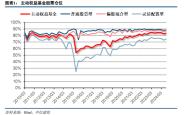高端游戏手柄测评
Title: Understanding the Dynamics of InGame Transactions in Mobile Gaming
In recent years, the landscape of gaming has experienced a significant shift towards mobile platforms, with ingame transactions becoming a prominent revenue stream for developers. Among these, "桓其付" (Huán Qífù) stands out as a notable player in the mobile gaming market. Let's delve into the intricacies of ingame transactions, exploring their impact on both players and developers while providing insights and recommendations for navigating this evolving terrain.
Understanding InGame Transactions:
Ingame transactions refer to purchases made within a game, often involving virtual currency, items, or other digital goods. These transactions have become a cornerstone of mobile gaming business models, offering players the opportunity to enhance their gaming experience while generating revenue for developers.
Key Components of Huán Qífù Transactions:
桓其付 (Huán Qífù) transactions encompass a range of activities, including the purchase of virtual currency, ingame items, and additional content such as expansion packs or subscriptions. These transactions are typically facilitated through integrated payment systems within the game or through thirdparty platforms.
Impact on Players:
For players, ingame transactions offer a means of personalizing and advancing their gaming experience. However, they also raise concerns regarding fairness, paytowin dynamics, and potential addictive behavior. Developers must balance monetization strategies with player satisfaction to maintain a healthy and sustainable gaming environment.
Impact on Developers:
Ingame transactions represent a significant source of revenue for developers, enabling continuous updates, content expansion, and ongoing support for their games. However, developers must carefully consider the implementation of monetization strategies to avoid alienating players or damaging their reputation.

Best Practices for Developers:
1.
Transparency:
Provide clear information about ingame purchases, including pricing, content, and any associated risks.2.
Fairness:
Avoid creating paytowin scenarios or unfair advantages for paying players. Focus on offering value rather than simply monetizing gameplay mechanics.3.
Player Engagement:
Build meaningful relationships with your player community through regular communication, feedback channels, and responsive support.4.
Diversification:
Explore diverse monetization models beyond direct purchases, such as advertising, sponsorships, or merchandise tieins.5.
Ethical Considerations:
Consider the potential impact of ingame transactions on vulnerable players, including minors, and implement appropriate safeguards.Navigating Regulatory Landscape:
The mobile gaming industry is subject to various regulations and guidelines regarding ingame transactions, particularly concerning consumer protection and gamblingrelated content. Developers must stay informed about legal requirements in their target markets and ensure compliance with relevant laws and industry standards.
Conclusion:
Ingame transactions represent a complex and multifaceted aspect of modern mobile gaming, offering both opportunities and challenges for players and developers alike. By adopting transparent, fair, and playercentric approaches to monetization, developers can foster positive gaming experiences while driving sustainable business growth. As the mobile gaming landscape continues to evolve, adapting to changing player preferences and regulatory frameworks will be essential for longterm success.
References:
1. "The Rise of Mobile Gaming: Understanding Player Preferences and Behaviors" [Link to Study]
2. "Monetization Strategies for Mobile Games: A Developer's Guide" [Link to eBook]
3. "Navigating Legal and Ethical Challenges in Mobile Gaming" [Link to Article]
本文 htmlit 原创,转载保留链接!网址:https://yggou.com/post/1844.html
1.本站遵循行业规范,任何转载的稿件都会明确标注作者和来源;2.本站的原创文章,请转载时务必注明文章作者和来源,不尊重原创的行为我们将追究责任;3.作者投稿可能会经我们编辑修改或补充。









